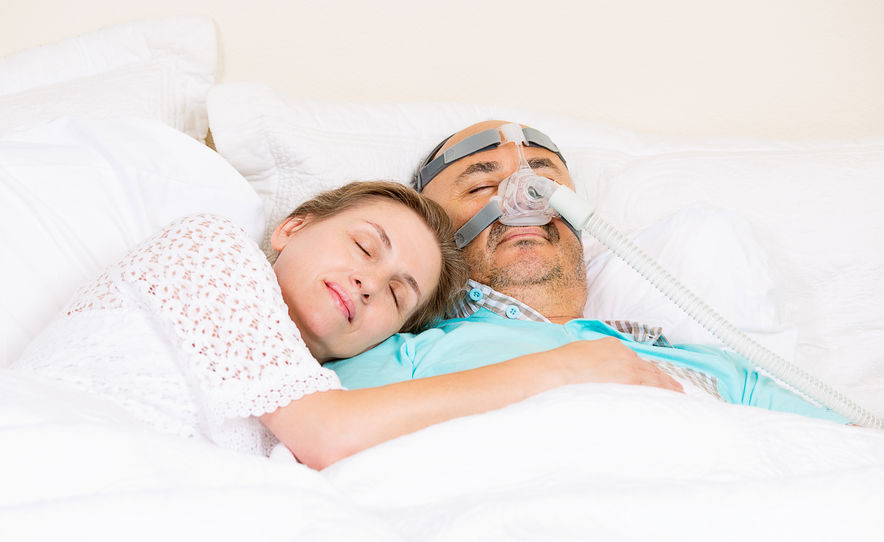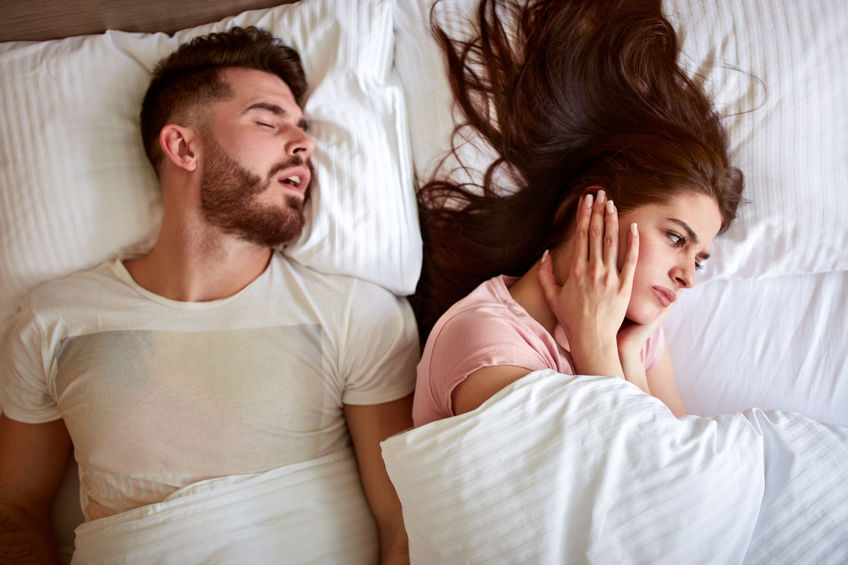CPAP, or “Continuous Positive Airway Pressure” is a treatment made for sleep apnea and it is one of the commonly used methods since it avoids having to undergo surgeries, here you’ll learn more about CPAP.
So, does CPAP improve your life? Yes, if you have sleep apnea, CPAP is a great improvement to your sleeping time. You can breathe normally because of the CPAP’s assistance making you get the rest that you need.
This CPAP’s therapy applies positive pressure to the airway using a mask connected to the machine.
Sleep apnea is usually caused by an obstructed airway which makes breathing difficult during sleep which is why giving positive pressure to the airway can help someone with sleep apnea breathe.
CPAP has been used for a while now and continuously improves the lives of sleep apnea patients. Imagine struggling to sleep every night and waking up always feeling tired? CPAP can lessen that for you.
Aside from the commonly used CPAP with the mask attached to a machine, a cordless CPAP mask is also being developed which is called “mini CPAP”.
The reason why a mini CPAP was invented was that sleeping with a mask that is attached to the machine through a cord can be uncomfortable at night. Movements become limited since you want to avoid plugging it off.
It is the only downside for CPAP and to some, it didn’t work and thus it did not make their life “better”. However, for the majority of people, all they want is to get proper sleep without apnea which CPAP can help with.
When CPAP is continuously applied, it can lessen sleep apnea attacks and may eventually regulate the patient’s breathing and if the normal breathing becomes permanent, the sleep apnea may be eliminated.
Unfortunately, the quickest way to get rid of sleep apnea is through surgeries, but with CPAP treatment, it can slowly be cured but there may be uncertainties with the mini CPAP.

Sleep apnea is not just a regular sleeping disorder, it can potentially turn into something very harmful if left ignored. CPAP exists to make sleep apnea patients feel better, so read on to learn why!
Why CPAP can improve your life
There are plenty of reasons why CPAP is a great thing for people with sleep apnea. Sleep apnea is recognized as an accompanying illness meaning it may come with another illness or invite another illness.
However, the scary part is that the illnesses are no simple matter. They are usually life threatening conditions if left untreated and CPAP is just the right method that can keep sleep apnea in check.
To understand the risks of not treating sleep apnea with CPAP, I listed the possible conditions that may happen for patients.
- Heart failure
- May lead to fatal conditions such as brain damages or even death
- Heart attack
- Can also be severely threatening
- Irregular heartbeat
- Worsens the ability to breathe
- Can trigger anxiety
- Stroke
- Can leave permanent damage
- May lead to paralysis
- Depression
- Not an easy condition to treat
- Diabetes
- Leaves you prone to more heart attacks
- High Blood Pressure
- Aside from your physical health, this can also affect your mental health and relationship with people around you including your work
- Increases ADHD
- Sleep apnea reduces your ability to focus which is what happens when you have ADHD (Attention Deficit Hyperactivity Disorder)
- Having a lack of control to focus can lead to frustration
- Headaches
- You may wake up with a bad headache which will lead to other problems listed here
- Lack of daily energy
- As mentioned, your energy will be reduced since you are unable to sleep well.
- Seizures
- Sleep apnea patients are more prone to seizures during sleep compared to epilepsy patients without sleep apnea.
The thing is, sleep apnea, if left untreated or worsened by other factors, can lead to death. Its risks can be fatal and leave permanent damage or severe pain which can be treated and made better by CPAP.
See all these risks? CPAP can make life better by avoiding these things. It’s better than nothing!
Why CPAP may not help make your life better

So we are talking about how wonderful the CPAP therapy is, but once again, not everyone is the same and the treatment may not be ideal for them.
People have different reasons why they have sleep apnea meaning there must be different ways to treat them aside from CPAP.
There are a few factors that can prevent CPAP from being as effective as it should be. The top reason is when patients are too uncomfortable using the CPAP machine even the mini CPAP ones.
The rest of the possible reasons why CPAP may not help you with sleep apnea can be due to the following.
- Obesity
- Can make breathing difficult even while asleep or not moving
- If you are using CPAP, try to maintain a healthy and balanced diet, exercise and lose weight to help make the treatment work better
- Hypothyroidism
- The condition wherein your body does not produce enough thyroid hormones, which is needed to control how to use energy received from food through metabolism. Bad metabolism can affect heartbeat and breathing.
- Even if you are using CPAP treatment, if you have hypothyroidism, your sleep apnea may persist
- Acromegaly
- Opposite of hypothyroidism, acromegaly produces too much growth hormones which can affect your overall health including breathing.
- Allergies
- There are certain allergies that can worsen sleep apnea. Allergies that result with difficulty in breathing are the likes.
- Try avoiding your allergies and see if CPAP will still be ineffective
- Smoking cigarettes
- Excessive smoking can damage your body which may make it harder to function or relax properly, increasing the risk of sleep apnea.
- Avoid smoking and it can try to make CPAP work better for you.
- Drinking liquor
- Too much liquor and drinking before going to sleep can cause sleep apnea.
- Avoid drinking liquor especially before going to bed and it can make the CPAP work better.
- Drug usage
- Sedations or other types of drugs especially when being abused can result in sleep apnea or worsen it.
- Being male
- Observations reveal that males tend to have sleep apnea more than females.
- Clearly, this factor is inevitable but this might mean you may need more than just CPAP treatment.
- Being old
- Observations also revealed that older adults are more prone to sleep apnea than younger ones due to more complicated health issues that may trigger sleep apnea
- Similar to being male, this may mean the CPAP will no longer be as effective as it should be especially if sleep apnea has been worsened by time.
Other natural causes of sleep apnea that may prevent CPAP from working can be a thick neck, narrow throat and having a round head.
When do you need CPAP to make your life better

If you are not sure if you need CPAP yet, there are a few sleep apnea symptoms that you can make note of or can be observed by your housemates, anyone who can see you sleeping.
One of the most common ways to identify sleep apnea is by conducting a “sleep study” wherein the patient will have to stay in a center where doctors and nurses would be observing their sleeping habits.
Not only the sleeping behavior but other factors that could be a sign of sleep apnea as well. Here’s a list of sleep apnea signs to watch out for if you are not ready to go for a sleep study yet.
- Heavy snoring
- Maybe, it can be a sign of fatigue but snoring loudly and usually can be a sign of sleep apnea.
- Gasping for air during sleep
- The feeling of drowning without knowing it and suddenly you’re out of air.
- Insomnia
- Having trouble going to sleep because you have breathing problems that you may not notice
- Hypersomnia
- Having trouble staying awake in the morning because you were unable to sleep well due to your sleep apnea
- Waking up with a headache
- Sleep apnea can disturb your body’s “charging” state. Since you can’t sleep well, your body will use energy for means that can help you breathe which may lead to headaches.
- Waking up with a dry mouth
- With sleep apnea, the person tends to snore and keep their mouth open when gasping for air which leads to a dried up mouth once we awaken.
- Decreased ability to focus
- Sleep apnea can give lack of sleep which will also result in difficulty to focus on anything
- Feeling uncomfortable
- Your lack of energy due to sleep apnea can make you feel uncomfortable and irritable without your knowledge
- Suddenly stop breathing during sleep
- Your housemates should notice this and tell you about it. Sleep apnea can disrupt breathing that may last for up to 10 seconds which is already risky.
Related Questions
- Do I have to use CPAP forever?
No, you don’t have to use CPAP forever. The good thing about CPAP is that it helps make sleep apnea slowly go away in time. As long as the condition persists, it is advisable to use CPAP until sleep apnea is eliminated.
- How long will a CPAP machine last?
A properly maintained CPAP machine can last more than 10 years but the average or estimated lifespan of a CPAP machine is 7 to 8 years. As long as the machine is cared for, it will continue to function normally and last.




